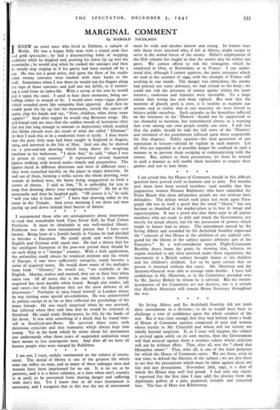I recommend those who are unimaginative about internment to read
that remarkable book Time Stood Still, by Paul Cohen Portheim. It must be obtainable at any well-stocked library. Portheim was the most international person that I have ever known. Being born of a Jewish family in Vienna he had decided to become a European. He could speak and write French, English and German with equal ease. He had a theory that for the intelligent European of the post-war period there should be no such thing as a " foreign " country. With a little application, the unfamiliar could always be rendered intimate and the whole of Europe, if one were sufficiently energetic, could become a series of acquired tastes. He would draw many of his analogies from food. "Oysters," he would say, "are symbolic of the English. Marine, sexless and encased, they are at their best when eaten raw. Of all tastes this is the one which is most slowly acquired but most durable when found. Rough and tender, salt and sweet—for the European they are the most delicate of all discoveries." Portheirn in 1914 found himself in London where he was visiting some special art-exhibition. He was uninterested in politics except in so far as they reflected the psychology of his many friends. He was much surprised when he was arrested, but relieved when they told him that he would be .interned at Stratford. He could study Shakespeare, he felt, by the banks of the Avon. It was with something of a shock that he found him- self at Stratford-atte-Bowe. He survived those years with dexterous cynicism and that humanity which always kept him young. Yet in the book which he wrote about his internment one understands what those years of suspended animation must have meant to less courageous men. And after all we have all known people who were warped by Ruhleben.
* * * *






















 Previous page
Previous page